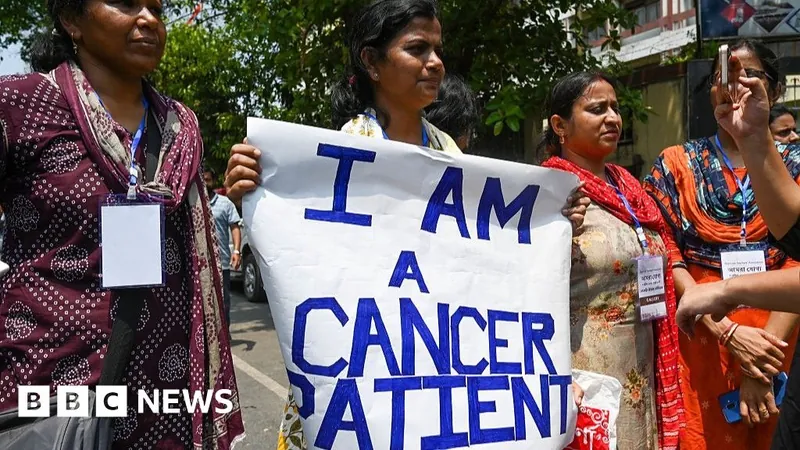
Loneliness: The Hidden Epidemic Doubling Your Pain, Study Uncovers
2025-09-16
Author: Siti
Loneliness Linked to Increased Physical Pain Across the Globe
A groundbreaking study from City St George's, University of London, reveals shocking truths about the relationship between loneliness and physical pain, spanning 139 countries. Published in *Scientific Reports*, this research paints a stark picture of how psychological distress fuels physical suffering.
Analyzing data from over 256,000 individuals aged 15 to 100, collected during the 2023 and 2024 Gallup World Poll, the study finds that those who feel lonely are more than twice as likely to endure physical pain compared to their socially connected counterparts.
Psychological Distress: The Major Culprit
The research team, including Dr. Lucía Macchia and Dr. Anne-Kathrin Fett, discovered that loneliness goes hand in hand with a host of health issues and heightened psychological distress. Lonely individuals are 2.5 times more likely to suffer from pain and report nearly double the incidence of health-related problems. Moreover, they face a disturbing 25.8% increase in psychological distress.
Who’s Most Affected? A Closer Look
Delving into the demographic data, the study found that many lonely individuals had limited educational backgrounds and struggled with employment. They often worked part-time when seeking full-time positions, faced unemployment, or were outside the workforce entirely. These social and economic disadvantages further compound their experiences.
Interestingly, the loneliness-pain relationship was consistent across all age groups but was notably stronger in women. Older adults may feel loneliness more acutely, but the young and middle-aged aren't immune, indicating a widespread issue that transcends age.
Cultural Context Matters
The research highlights the profound impact of cultural contexts on the experiences of loneliness and pain. Dr. Macchia notes that while the degree of loneliness and associated pain varies by country, understanding the cultural nuances is essential for tackling these issues effectively.
Global Impact: A Call for Action
Alarmingly, 22.7% of respondents reported feeling extremely lonely just the day before their survey. This loneliness often correlates with lower income, education, and higher rates of being single, separated, or widowed.
The findings make it clear: loneliness is not merely about lacking company. It’s intricately linked to poor health and diminished well-being, with even those reporting social ties still experiencing significant feelings of isolation.
Towards Effective Interventions
The authors argue that addressing loneliness must go beyond fostering social connections, calling for a broader strategy that tackles psychological distress and socioeconomic disparities.
As loneliness is unveiled as a potentially painful and complex global health challenge affecting millions, the study calls for in-depth, cross-cultural research to develop more effective solutions to combat this escalating crisis.



 Brasil (PT)
Brasil (PT)
 Canada (EN)
Canada (EN)
 Chile (ES)
Chile (ES)
 Česko (CS)
Česko (CS)
 대한민국 (KO)
대한민국 (KO)
 España (ES)
España (ES)
 France (FR)
France (FR)
 Hong Kong (EN)
Hong Kong (EN)
 Italia (IT)
Italia (IT)
 日本 (JA)
日本 (JA)
 Magyarország (HU)
Magyarország (HU)
 Norge (NO)
Norge (NO)
 Polska (PL)
Polska (PL)
 Schweiz (DE)
Schweiz (DE)
 Singapore (EN)
Singapore (EN)
 Sverige (SV)
Sverige (SV)
 Suomi (FI)
Suomi (FI)
 Türkiye (TR)
Türkiye (TR)
 الإمارات العربية المتحدة (AR)
الإمارات العربية المتحدة (AR)